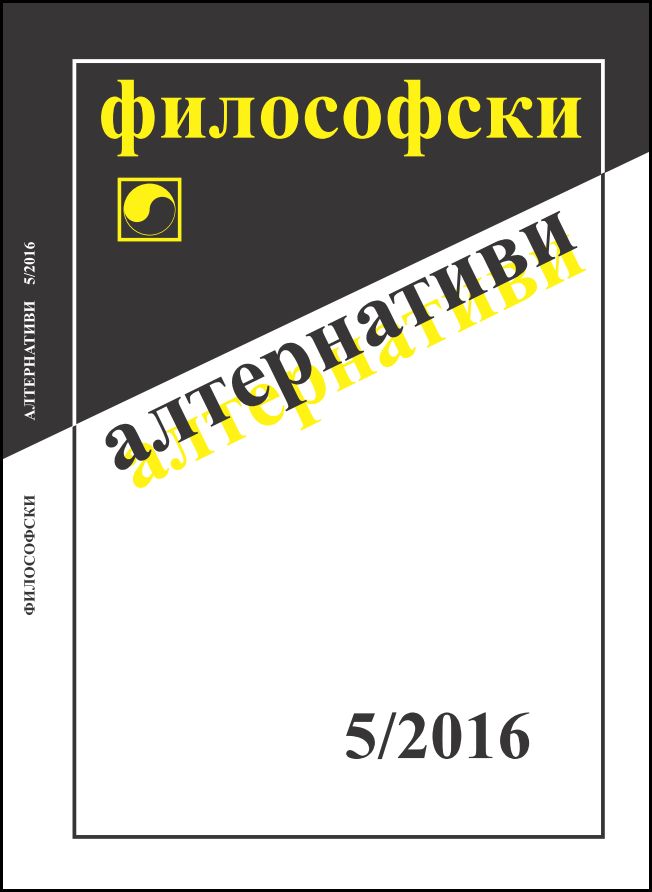
We kindly inform you that, as long as the subject affiliation of our 300.000+ articles is in progress, you might get unsufficient or no results on your third level or second level search. In this case, please broaden your search criteria.

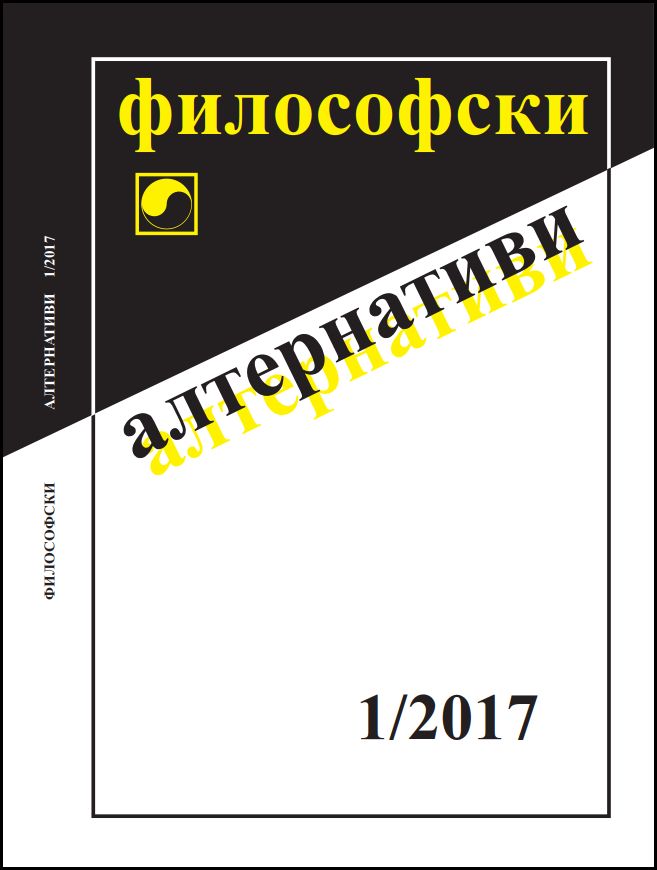
The basic aim of this study is to reveal and demonstrate how the analysis of the topic of contradiction can outline directions for overcoming transcendentalism, i.e., outline ontological-dialectical approaches to logic through the prism of Kant and Hegel, and based on this, present the result of paraconsistent logic with regard to the formalization of dialectical logic.
More...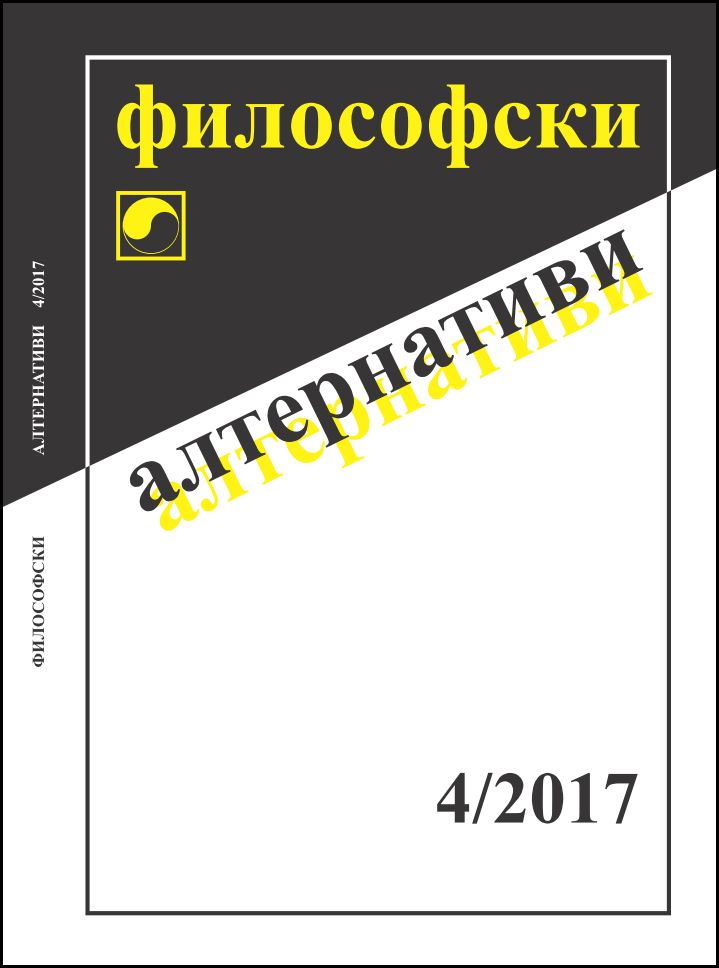
Around the year 1802, when he was reading his famous Lectures on the Method of Academic Study, Schelling, merely 27 years old at the time, had already parted definitely with Fichte’s philosophy and elaborated his own identity philosophy. These lectures contain no didactic guidance for teachers but address students, showing them how, in studying the sciences, not to remain at the level of empirical knowledge but to rise to the height of true philosophical thinking, such as he saw displayed in his own philosophy. That is why he proceeds (in his first lecture) from the absolute concept of science but immediately passes (in the second) to the scientific and moral significance of the higher academic institutions as centers for the education of society. Throughout the discussion on the separate sciences, the prevailing idea advanced was of their identity and of the freedom of science; this idea became a basis of the university reform undertaken in Germany by Wilhelm von Humboldt.
More...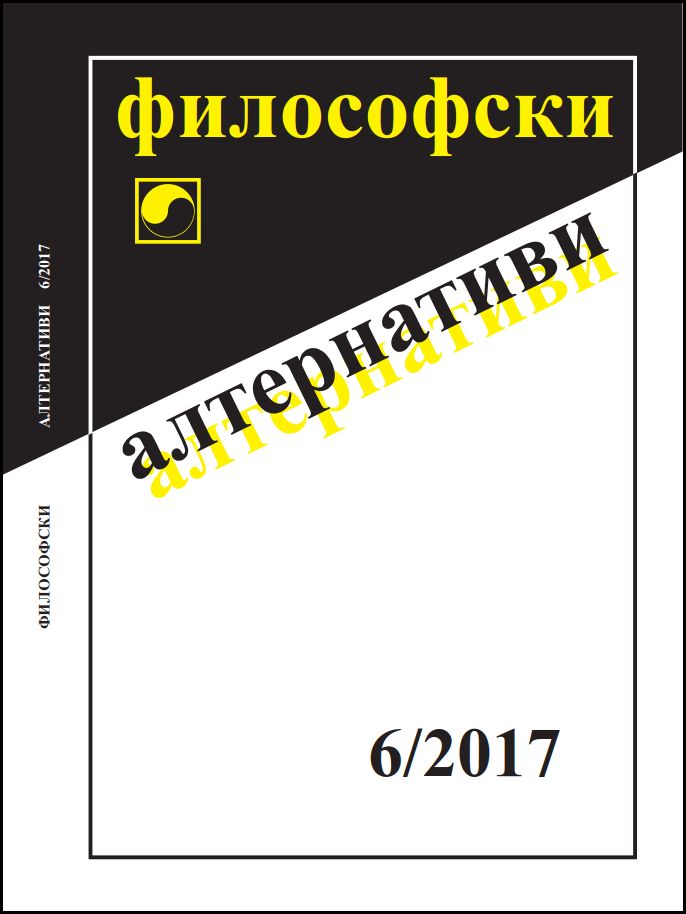
This article summarizes the author’s theses presented in his larger monograph devoted to the works of Ivan Vazov (the absolute national classic) written in the 1880s. The poetic cycle Epic of the Forgotten (1881–84), the novella Uncles (1885) and the epic novel Under the Yoke (1888) not only constitute the absolute core of the national literary canon, but have also been seen as a complete model of the national philosophy of history, of the Bulgarian collective being in History. The article examines two important points. The first is related to how these major works (the Epic, Uncles and Under the Yoke) construct Vazov’s national-ideological and national-philosophical model in terms of the Hegelian dialectic of thesis–antithesis–synthesis. The second point is related to how this Vazovian model is significantly placed in the framework of two figures – the national hero Vasil Levski (in Epic) and the idiot Muncho (in Under the Yoke) – that are both contrasting and functionally identical. The article analyzes their “high” historical-philosophical representative features.
More...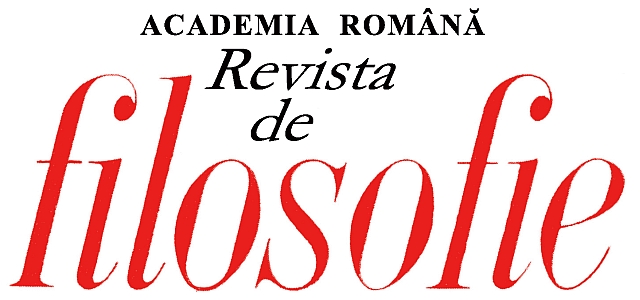
The article comments the fourth chapter of Hegelʼs Phenomenology of Spirit, which is dedicated to the last preceding stage of Reason: the Self-consciousness. It is a stage of fight, death and recognition. Self-consciousness considers itself, as oneʼs own truth. It acts accordingly to this conviction and all its situations are acts. The development of Self-consciousness in the conditions of its determination as oneʼs own truth culminates with the affirmation of the concept of Reason, for which Truth is transcendent in relation to Consciousness.
More...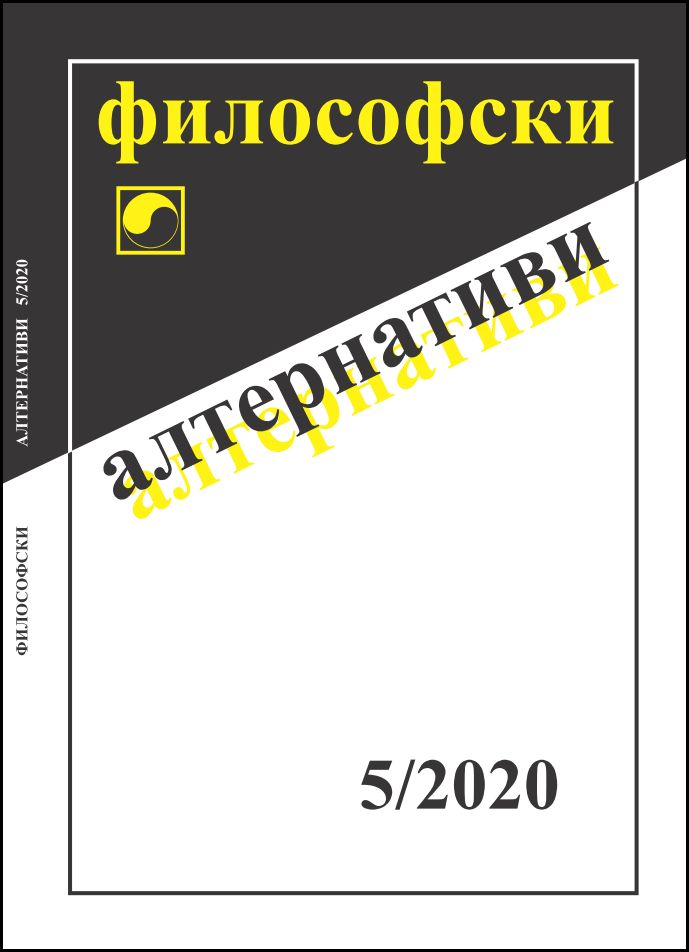
In his system of the logical functions of understanding Kant includes modality as the fourth class together with quantity, quality and relation. Kant defines modality briefly, though with the clear indication that modality has to put the judgment in the “relation to the thinking in general”. The present paper will argue that Kant has reached a new definition of modality. However, this can be demonstrated in the logical reconstruction of the system of judgments with the consistent course through the four logical types of judgments included. The specific functions of these judgments are formed on the bases of the logical possibilities of subject, predicate and logical relation. These components are gradually intensified with their inner subdivision and are formed on all other objects in the field of thinking. These general judgmental areas of subject, predicate and relation subdivision constitute the modality in its class. The modality acts through separating and producing the most certain and hardest connection between the judgmental components on the base of modal ground for the object and on the calculation of the whole field of judgment. Modality is realized as the most complex and covered construction of judgment in its own judgmental area. Exactly this general schema of modality is the base for transition to the second analytic in Critique of Pure Reason – the transition as an immediate and inner connection between the Analytic of Concepts and the Analytic of Principles. The schema of modality is generalized and assembled in a new logical formation – the pure transcendental schema with its logical structure and principles. This search has to give the answer to “the most important task” of transcendental logic: how can we build the object of the pure understanding through the logical form of the synthetic judgments a priori.
More...
The origin of the idea of inner sense in the early Schelling’s philosophy represents a specific cognitive way which has the aim to make the concept of clear philosophical cognition. In the frame of German classical philosophy, the idea of inner sense
More...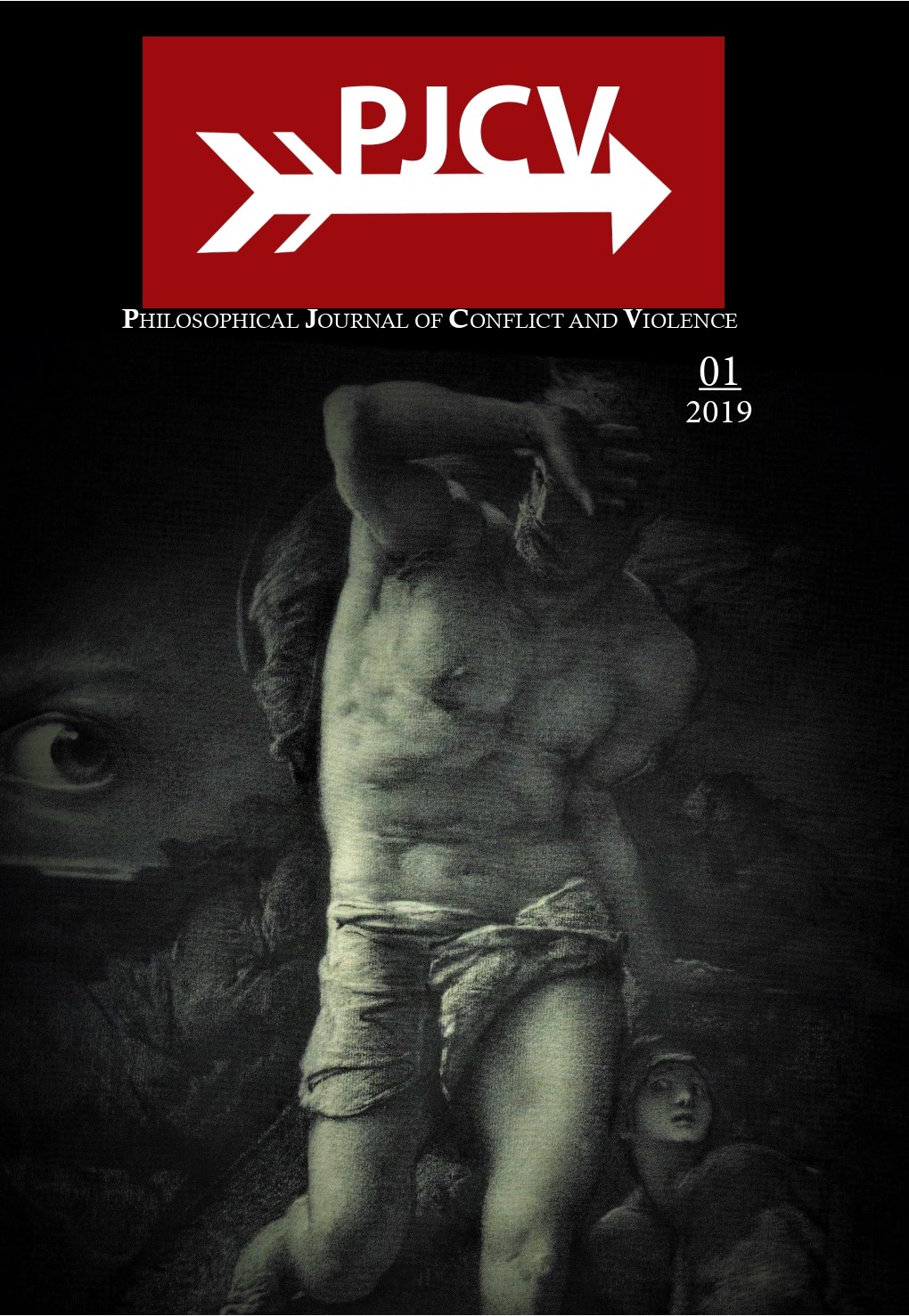
That the senselessness of violence – violence no longer a mere political means to a justified end outside it – is omnipresent in today’s world: the realization of this truth appears to have made obsolete today the conventional understanding of violence as mere political means. That the Greeks thought “bia,” which means violence, in its close proximity with “bio,” which means “life,” speaks not surprisingly a truth whose manifestation we perceive today more clearly than ever before, albeit the mode or manner of this manifestation today was perhaps not known to the Greeks. TakingF.W.J. von Schelling’s reflection on evil and violence as the point of departure, this paper seeks to understand the relation between life and violence anew and attempts to show that at the heart of the phenomenon of evil lies the enigmatic and fascinating question of the image.
More...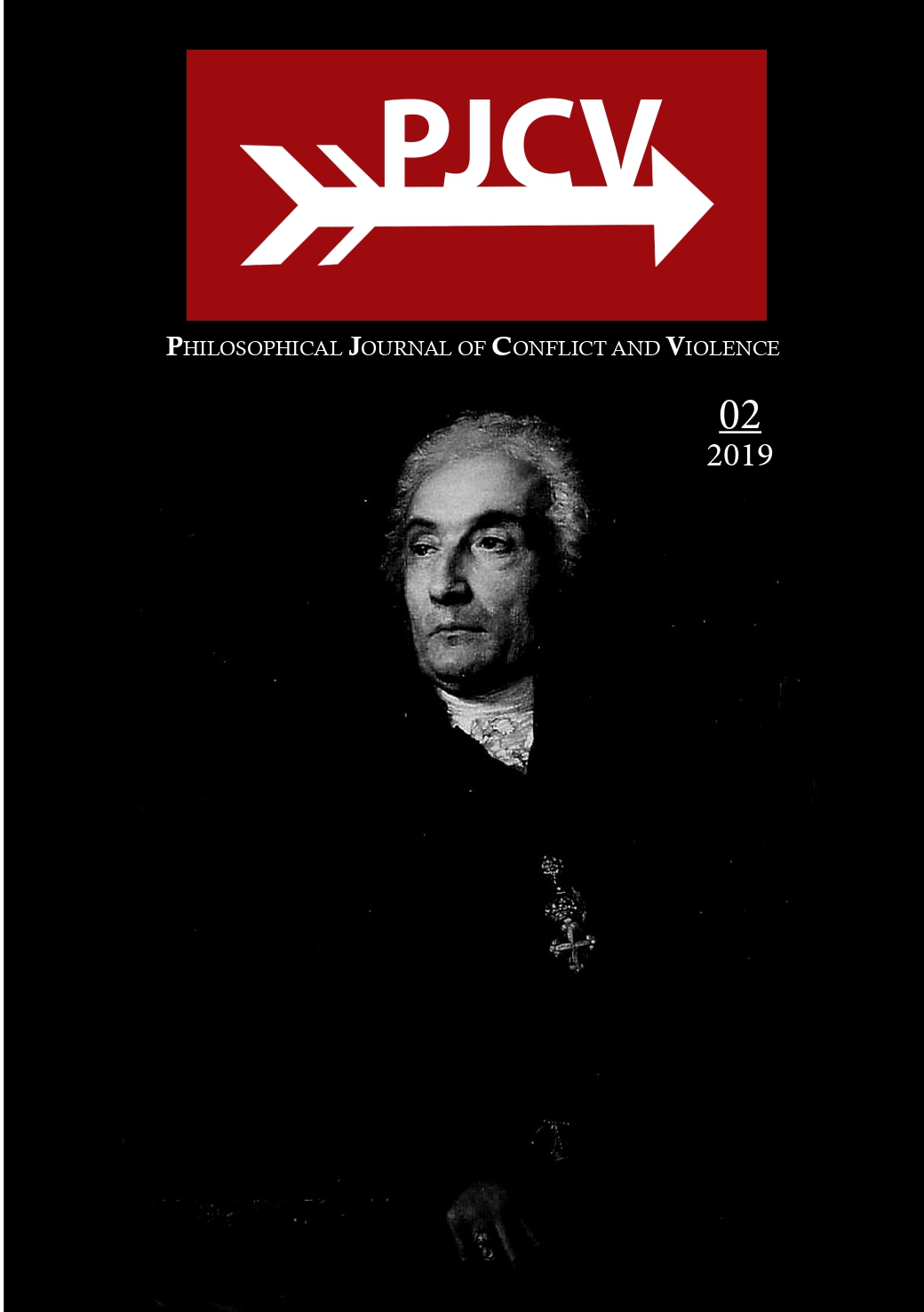
There are two aims to the present paper. The first is to support the assertion that traditional justifications of revolution, rebellion and civil disobedience, though not wrong, are culturally inappropriate. The second is to outline, in the most basic of forms, what a “culturally appropriate” form of political resistance would require. The latter aim will be attempted by offering a counter-enlightenment model of resistance, derived in a large part from a Hegelian reading of Sartre's later work on groups, appropriate to the cultural conditions of late modernity.
More...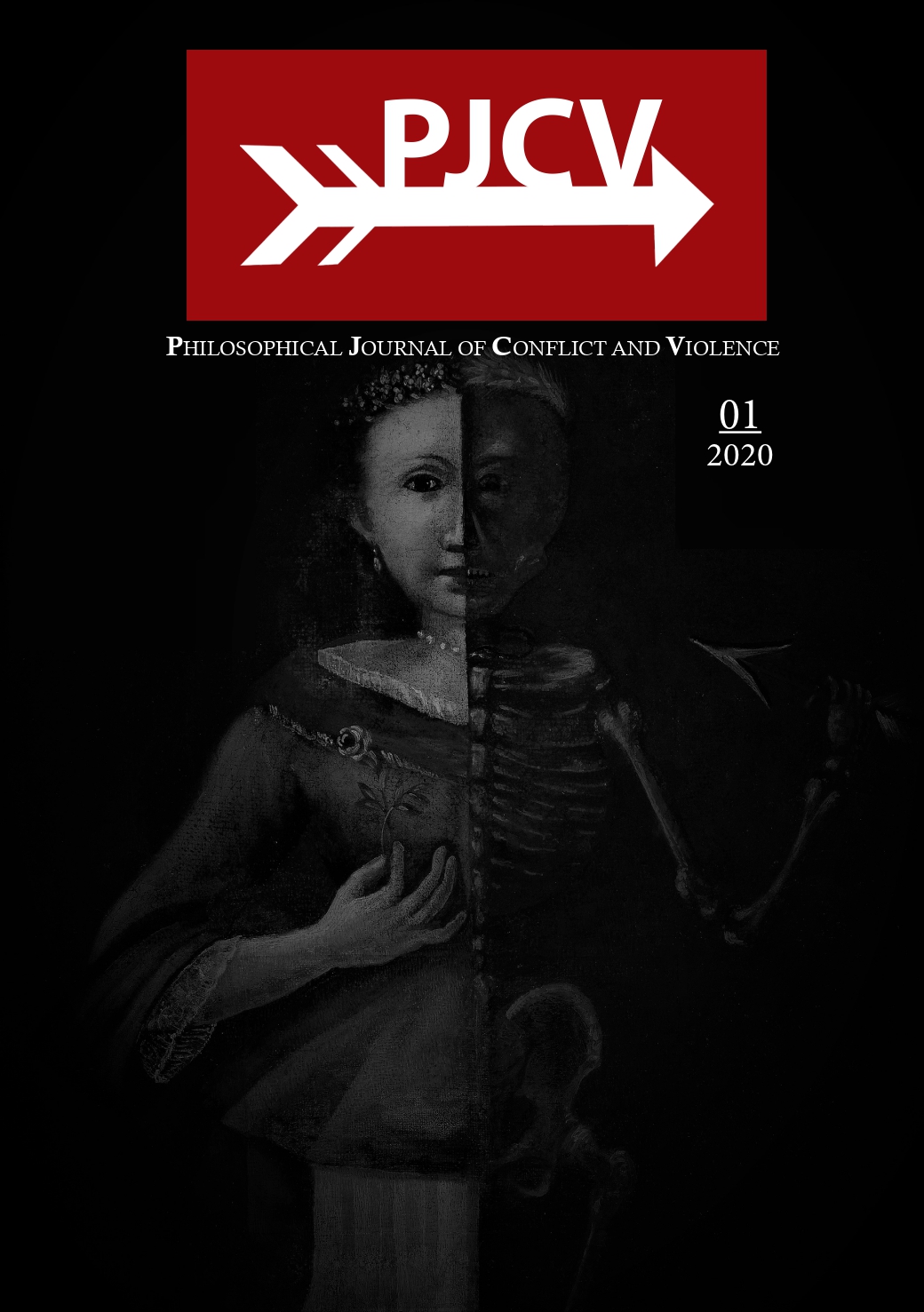
Inspired by the pioneering work of Robert R. Williams and Axel Honneth, this article offers a new lens through which to consider Hegel’s infamous ‘rabble problem.’ By rethinking the conflict between the rabble and the State as a conflict between intersubjective and institutional recognition—generating a failure of reciprocal recognition—I suggest that there is embedded in Hegel's right of necessity a right of resistance that the rabble may justifiably claim in their struggle for recognition. The existence of the rabble, I ultimately suggest, is therefore not an inevitable consequence of the State, but an indication that the State has itself failed to concretize the universal consciousness of Spirit.
More...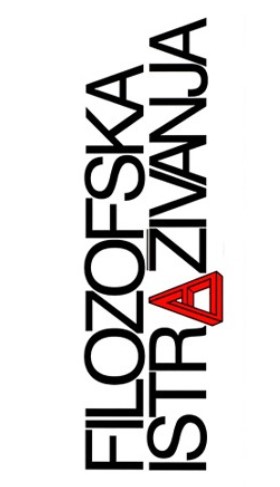
Im Artikel werden die tragenden Konturen des Offenbarungsbegriffs im Denken Schellings hervorgehoben. Der Begriff hat den christlichen Hintergrund, wird aber von Schelling nicht auf konfessionelle Ebene festgelegt oder reduziert. Schelling nimmt ihn als Realität in der geschichtlichen Erfahrung der Menschheit; als solcher ist er interessant für die Philosophie. Das Thema der Offenbarung markiert bereits die erste Periode des Schellingschen Denkens: mit ihm wird die erkenntnismässige Entdeckung der Unbedingtheit und Autonomie der menschlichen Freiheit verbunden und zwar im Zusammenhang mit dem deutsch-aufklärerischen Verständnis der christlichen Religion als Erzieherin des Menschengeschlechts in moralibus. In der zweiten Periode, die man mit Schellings Freiheitsschrift beginnen und mit den Weltaltern fortsetzen lässt, wird der Offenbarungsbegriff im Zusammenhang mit der Problematik des Bösen, der Freiheit und der Schöpfung behandelt. Er signalisiert die Freiheit des Absoluten und seiner schöpferischen Wirkung und Präsenz in Natur und (Religions)Geschichte der Menschheit – allerdings wird das Böse als notwendiges Moment der Offenbarung verstanden. In der letzten Periode seines Denkens (Philosophie der Mythologie und der Offenbarung) behandelt Schelling die Offenbarung (vor allem Offenbarung in Christo) als freie geschichtliche Manifestation des Absoluten, die zugleich als Angebot und Apel an seine freie Annahme von Seiten des Menschen verstanden und dargestellt wird. Die positive Philosophie Schellings ist keineswegs eine verkappte christliche Theologie; mit einem gewissen Recht könnte man sie vielleicht als Philosophie der christlichen Religion nennen. Ihr geht es darum, die Inhalte der christlichen Religion durchzudenken, ohne damit den Interessen der Kirchen Dienst in ihren Anliegen erweisen zu wollen, aber auch ohne mit den Interessen der Religionskritik gehemmt zu sein. Die Philosophie der Offenbarung versucht Leben und Wirken Gottes zu beschreiben, der seiner Schöpfung zuvorkommt und sie zur Vollendung zu führen beabsichtigt – auf dass Gott alles in allem wird.
More...
In diesem Aufsatz wird Schellings Begriff der Zeugung in der ersten Fassung seines Werkes Die Weltalter thematisiert. Mehrere Fassungen dieser unvollendeten Schrift lassen die Grundlage von den Schellings Überlegungen im Versuch erkennen, den Zeitbegriff von der mechanistischen Konzeption der verketteten Aufeinanderfolge zu befreien und die Zeit im Punkt des Unterschieds – der „Zeugung“ – zwischen der Vergangenheit, der Gegenwart und der Zukunft zu erfassen. In diesem Sinne wird der Ursprung der Zeit im breiteren Kontext der Entwicklung eines „Urwesens“, d.h. seiner Selbstoffenbarung in der lebendigen Wirklichkeit interpretiert. Diese Selbstoffenbarung wird von Schelling als eine Differenzierung der ursprünglich potentiellen und unwirklichen Indifferenz von Subjekt und Objekt aufgefasst. Der entscheidende Punkt dieser Differenzierung liegt aber darin, dass die Indifferenz sich selbst von sich selbst scheidet und als der objektive Grund der eigenen lebendigen Subjektivität überwunden und hinter sich selbst zurückgelassen wird. Dieser Grund ist die Natur im Ganzen, die für das Subjektive sein immer schon vergangenes Sein darstellt.
More...
The Essay on Freedom represents a milestone in the philosophy of F. W. J. Schelling. Although Schelling already deviated from a strictly idealistic framework with his philosophy of nature, notably from that of Kant and Fichte, because he was seeking a moment of self-positing activity of the absolute subject in the object itself, it was only with The Essay on Freedom that he stepped out of that framework. The central point considered is an introduction of the second principle that was complementary, but irreducible to the standard idealist principle of self-consciousness. It was about the ground or nature in God. Only through that duality of principles, it was possible to grasp the positive notion of freedom as the possibility for good and evil. In such manner comprehended, the fact of human freedom in its entirety became relation with the whole of beings. The purpose of such explanation was an attempt to solve the problem that was spanning through Schellingʼs entire philosophy – the problem of the relation between finite and infinite.
More...
In dieser Arbeit wird vorgestellt die Entwicklung einer notwendigen Idee des Systems, die die wahre Form der Philosophie als Wissenschaft darstellt, wie es in Schellings späterem Denken, besonders während seiner Erlangen Vorlesungen von 1821 ausgeführt wurde. Schelling zeigt, dass das absolute Subjekt, das sich von einer Wissensform zur anderen bewegt, das über alle bestimmten Systeme erhobene Totalsystem bildet, und dadurch die Selbsterkenntnis erlangt, welche der wahre Inhalt der Philosophie als Wissenschaft ist. Das wahre philosophische Wissen ist das, was sich der Bewegung des absoluten Subjekts widersetzt, wodurch das menschliche Bewusstsein als das Bewusstsein des absoluten Subjekts ausgebildet wird. Nur die Philosophie als Wissenschaft kann den Menschen zur höchsten Wissen über das Bewusstsein des absoluten Subjekts als sein eigenes Bewusstsein führen und bringen.
More...
Review of: Damir Barbarić (ur.), Sloboda i zlo, Schellingov »Spis o slobodi«, Matica hrvatska, Zagreb 2017.
More...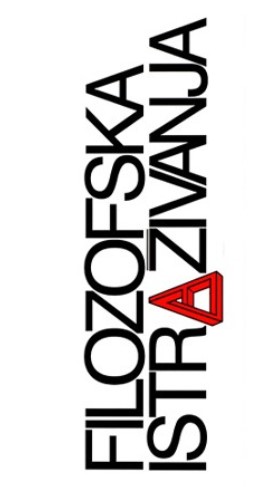
Philosophy and science fiction are two separate discourses that use counter-intuitive scenarios in two distinct ways. Where philosophy endeavours to ground counter-intuitive scenarios, science fiction as a transmedial fictional genre acts in a pragmatic and exploratory manner by seeking to imagine what it would be like if they were real. In this paper, I analyse David Cronenberg’s science fiction film eXistenZ, and defend two theses. The critical-theoretical thesis: Cronenberg thinks society is being gamified and seeks to dramatise the process of gamification along with its pitfalls. The metaphysical thesis: Cronenberg’s diegetic world brings about a new articulation of the scepticism as an old philosophical problem. An attempt to excavate the metaphysical presuppositions of this work reanimates Cartesian interactionist dualism and Kantian transcendental idealism, as two well-known philosophical positions.
More...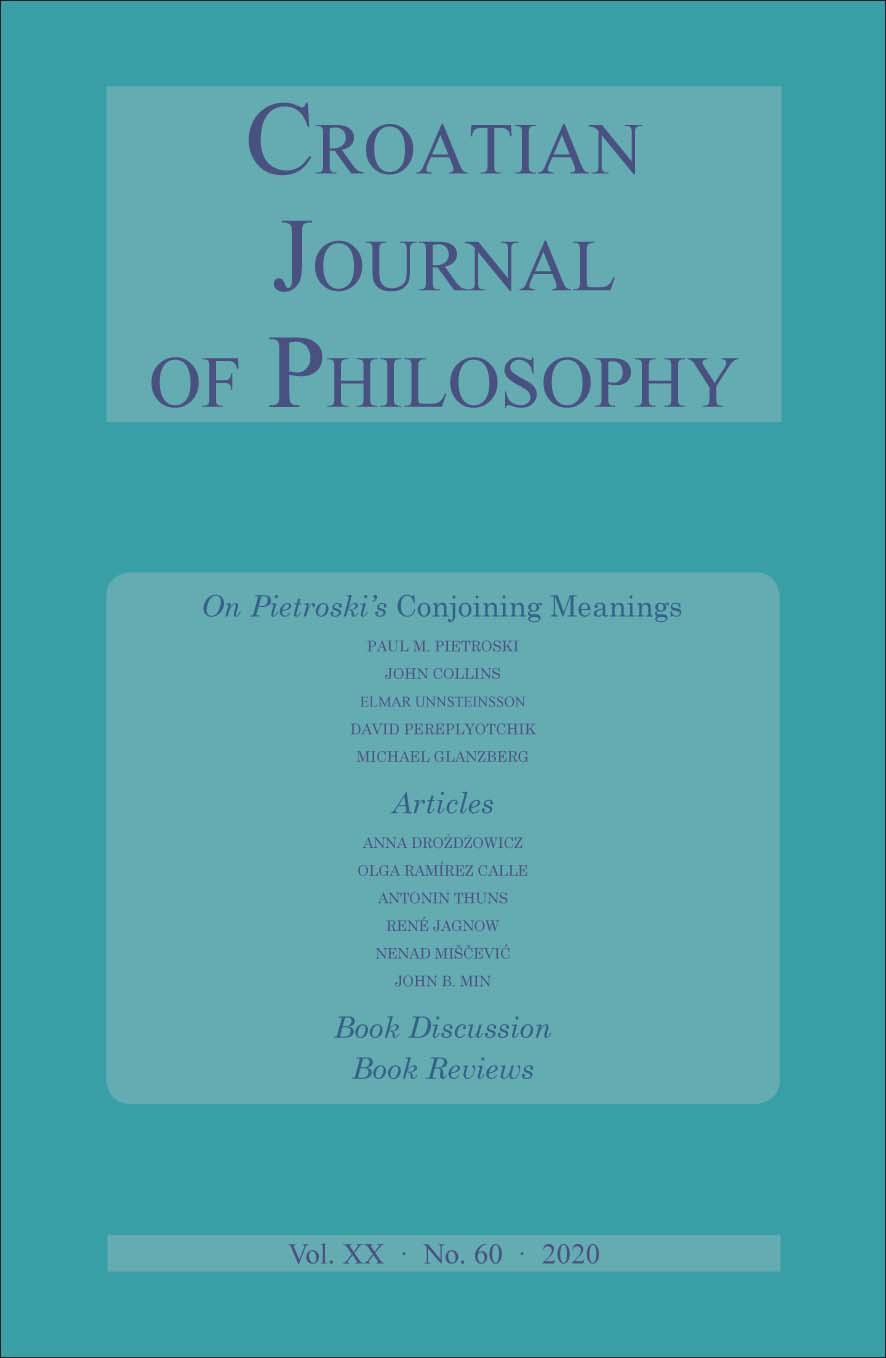
Review of: EKIN ERKAN - Béatrice Longuenesse, I, Me, Mine: Back to Kant and Back Again, Oxford: Oxford University Press, 2017, xix + 257 pp.
More...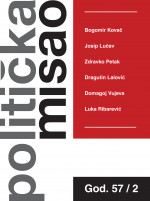
The author deals with Hegel’s reception of political economy in the Philosophy of Right, showing that reception to be decisive for the development of Hegel’s legal and political philosophy and its mature form, but also for his understanding of the modern natural law tradition and the theory of social contract. Relying on the findings of Dag Strpić, the author argues that Hegel considered “civil society” to be the place of realization of the contractual idea of the state. The “laws” immanent to modern market economy, which were “discovered” by political economy, make in Hegel’s view contractual constitution of the state superfluous and provide at the same time the internal measure for the critique of the contractual theory. This, however, does not mean that Hegel accepts the social model of classical political economy, nor its understanding of the relation between the state and society. He questions its central assumption on the self-regulatory capacity of the market, for which reason he finds necessary the regulation of the market by the state. In the final analysis, as it is shown, the “universality” of civil society is grounded in the “universality” of the political state, which is a higher level of actualization of human freedom than civil society.
More...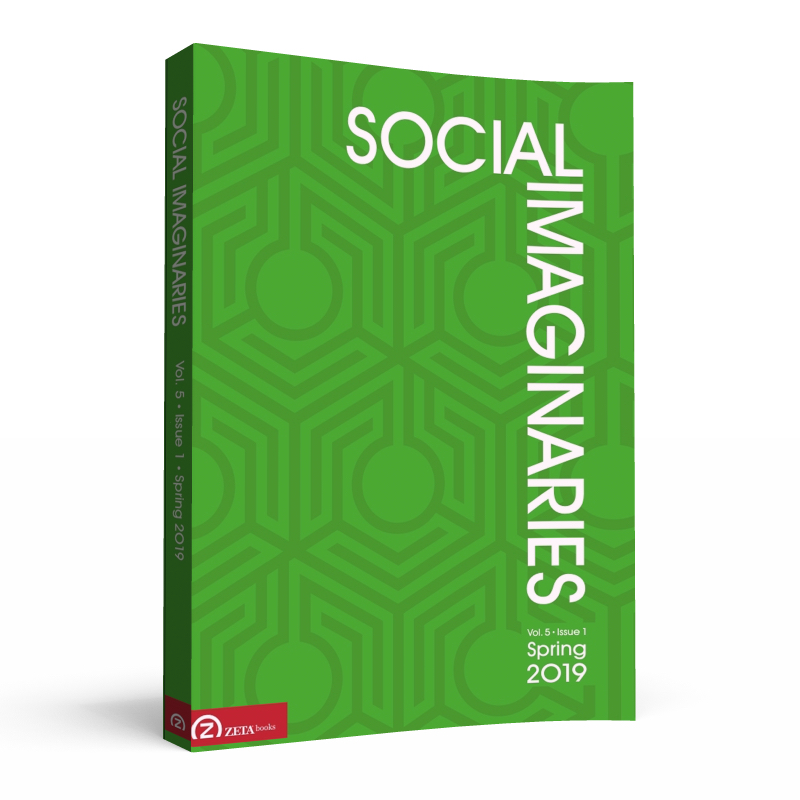
Carnap famously argued that metaphysics unavoidably involves a confusion between science and poetry. Unlike the lyric poet, who does not attempt to make an argument, the metaphysician attempts to make an argument while simultaneously lacking in musical talent. Carnap’s objection that metaphysics unavoidably involves a blend of philosophy and poetry is not a 20th century insight. Plato, in his beautifully crafted Phaedo, presents us with the imprisoned Socrates, who having been condemned to death for practicing philosophy in the Apology, has a dream in which he realizes that he ought to make music. In this dialogue, however, Plato indicates no hint of the scorn that Carnap has for metaphysics— rather Socrates’ friends find him setting Aesop’s fables to verse. In the modern era, Nietzsche re-introduced the ‘music making Socrates’ in his Birth of Tragedy. But Nietzsche is not the first to revive the concept in modern philosophy. Before Nietzsche’s call for a new music-making Socrates, the early German Romantics, in particular Schlegel, explicitly called for the identification of poetry and science in the concept of Poesie. As Schlegel writes: ‘Alle Kunst soll Wissenschaft werden, und alle Wissenschaft Kunst werden; Poesie und Philosophie sollen vereinigt sein.’ On the one hand, in Ion Socrates is not wrong to critique Ion for not knowing the significance of his own work. On the other hand, Socrates himself recognizes in Phaedo that he is guilty of failing to heed the call to make music. Long misunderstood, the Romantic concept of Poesie is not mere irrationalism, for it offers an aesthetic metaphysics of the Absolute. Romanticism is indeed a philosophy of the Absolute, but one which cannot conceive of any solution to the profound impasses that confront philosophical knowing except by learning to make music.
More...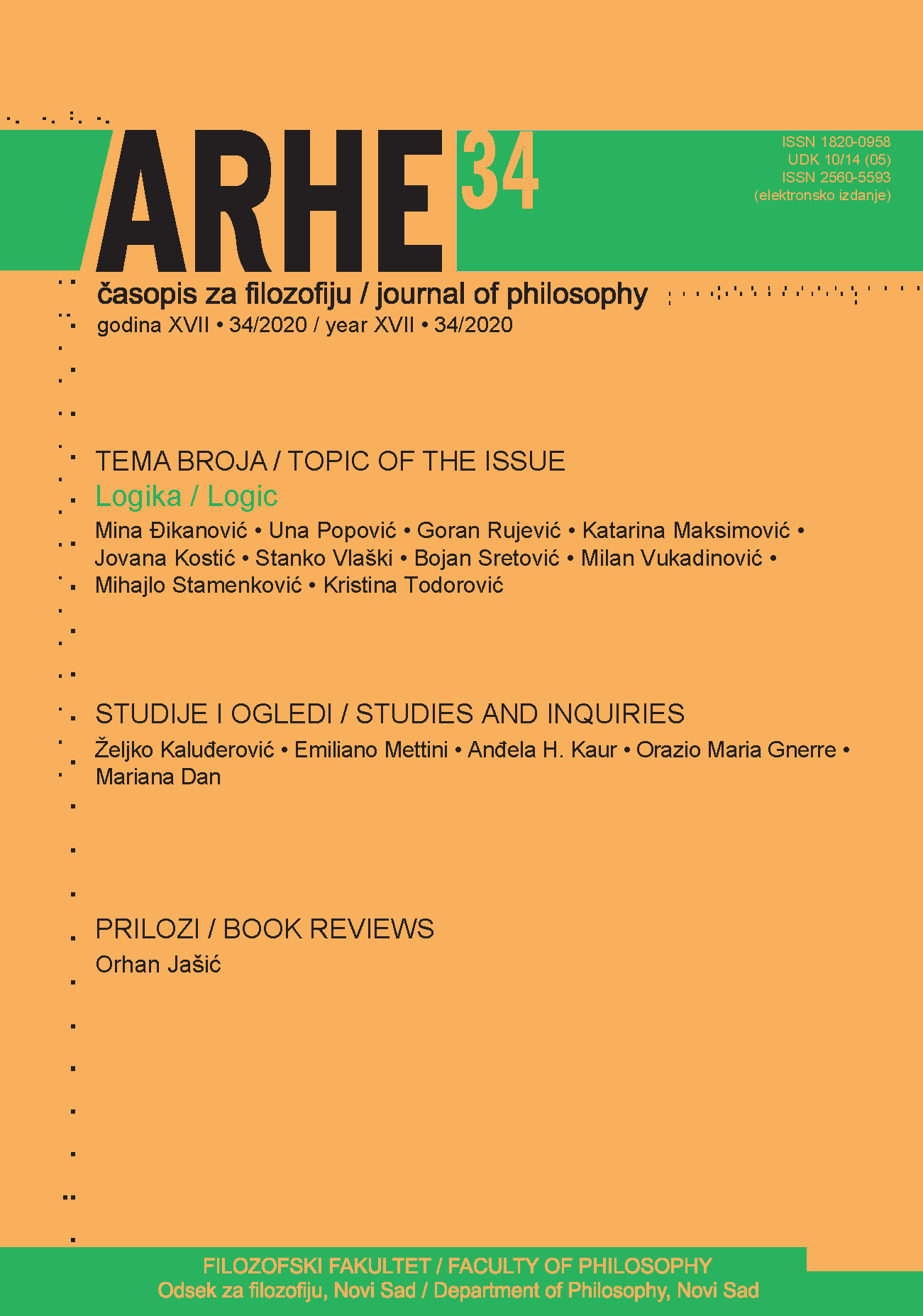
While the traditional logic reflected the structure of proposition assuming separation and persistence of concepts of subject and predicate, Hegel, by his conception of a speculative proposition, has allowed philosophy to grasp a dialectical nature of the relation of those concepts. The author considers the radical change that happens in the logical reflection of the essence of the proposition in the light of the crucial requirement of the whole Hegel’s philosophy to think and express the Absolute as the subject. After the introductory comments on the groundbreaking epochs in the history of philosophical thinking due to which the logical problem of proposition became one of the central ontological issues, the birthplace of Hegel’s theory of speculative proposition is found within his early critique of philosophies of the first principle such as Fichte’s. In the central part of the text, the theory of the speculative proposition is thematized considering Hegel’s insight into the difference between a philosophical proposition and propositions and knowledge that originate from the other spheres of spirituality. After that, the proposition that expresses the Absolute as the subject from the Preface of Phenomenology of Spirit is interpreted as the manifestation of the speculative nature of the philosophical proposition, because, from the other side, the speculative proposition could be interpreted as the expression and the way the Absolute exists, too. As the speculative proposition, however, the proposition “the Absolute is subject” reveals reasons why the philosophical system, not the isolated proposition, has to be understood as the true element of existence of truth in Hegel’s thought.
More...